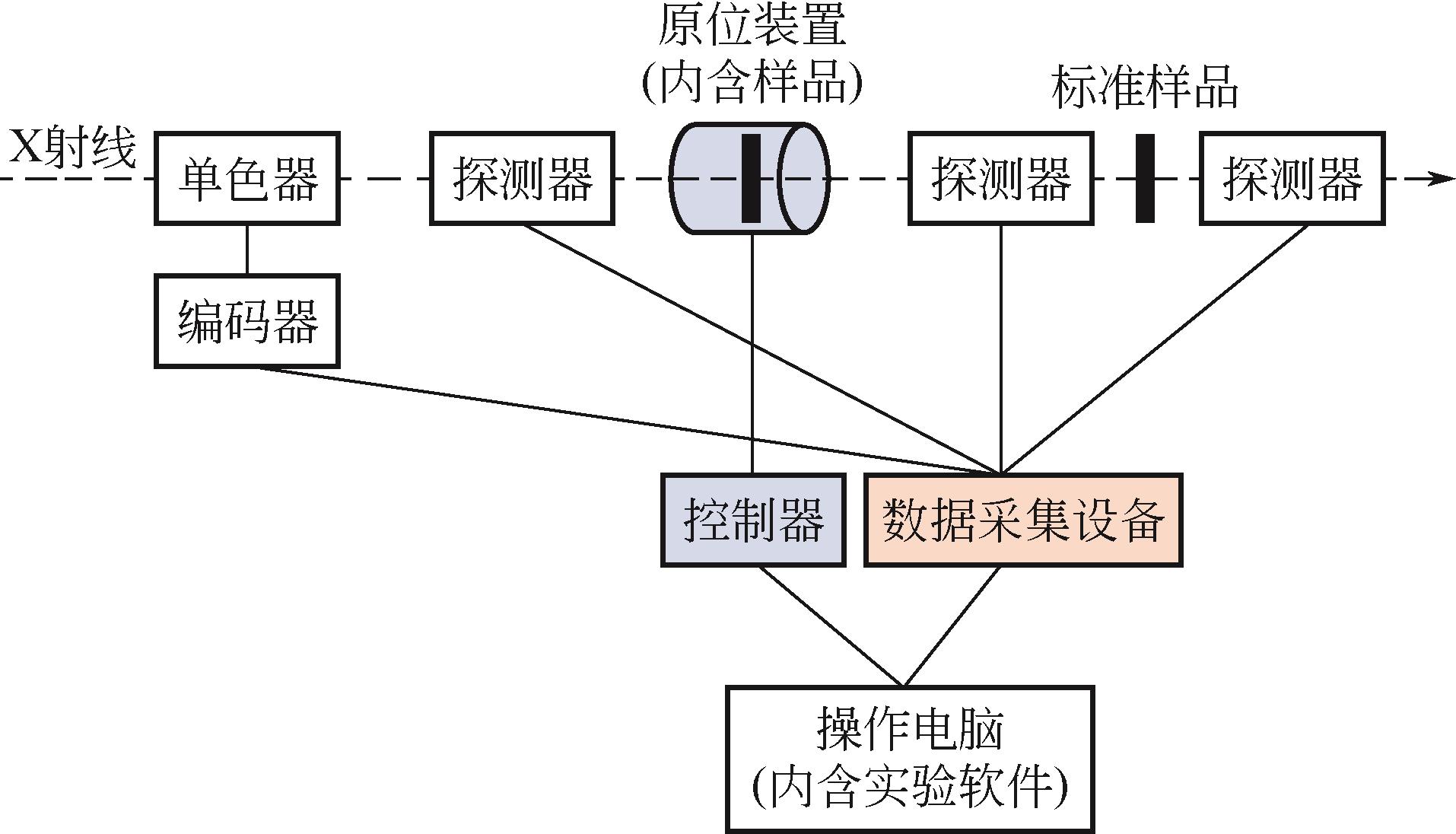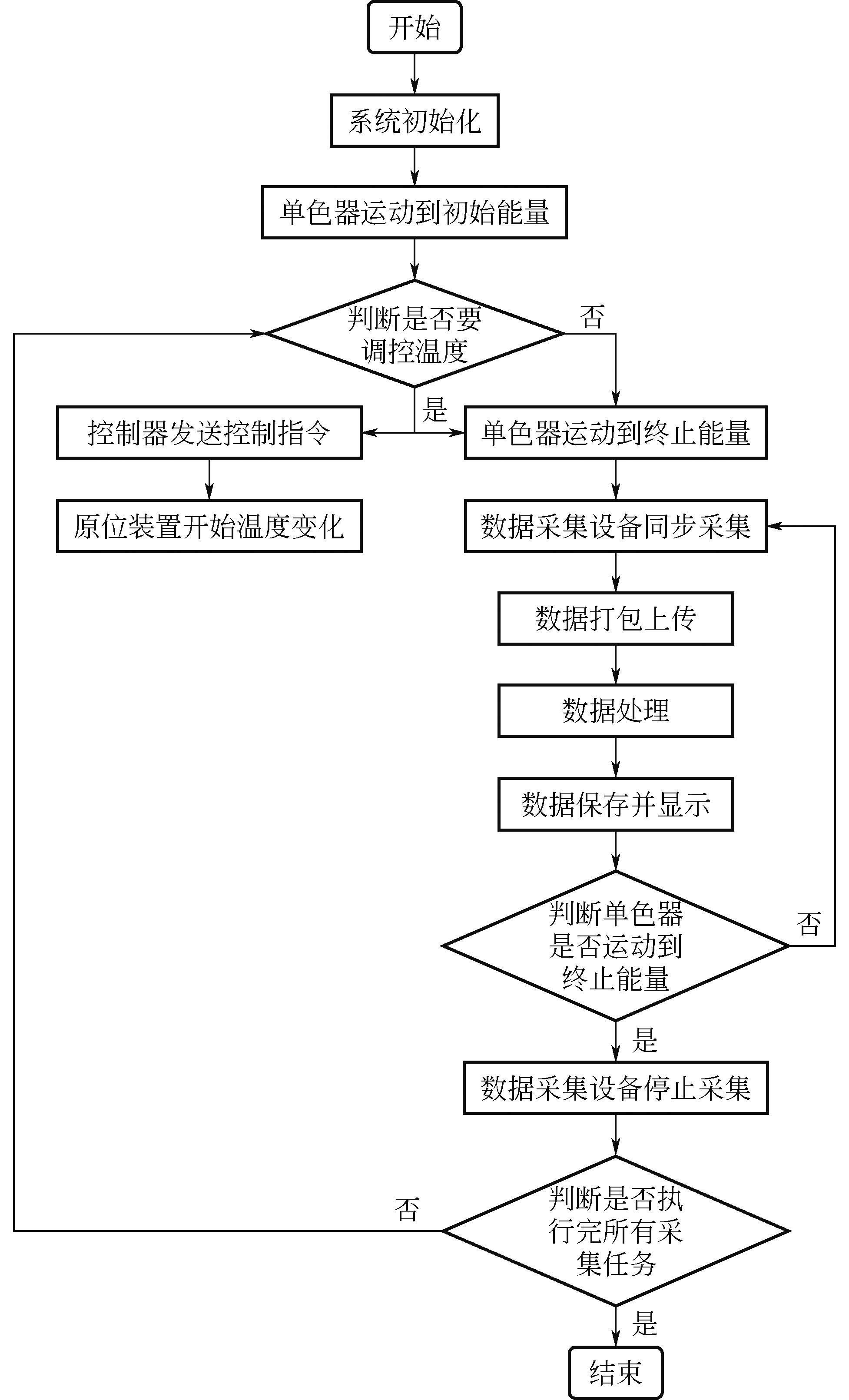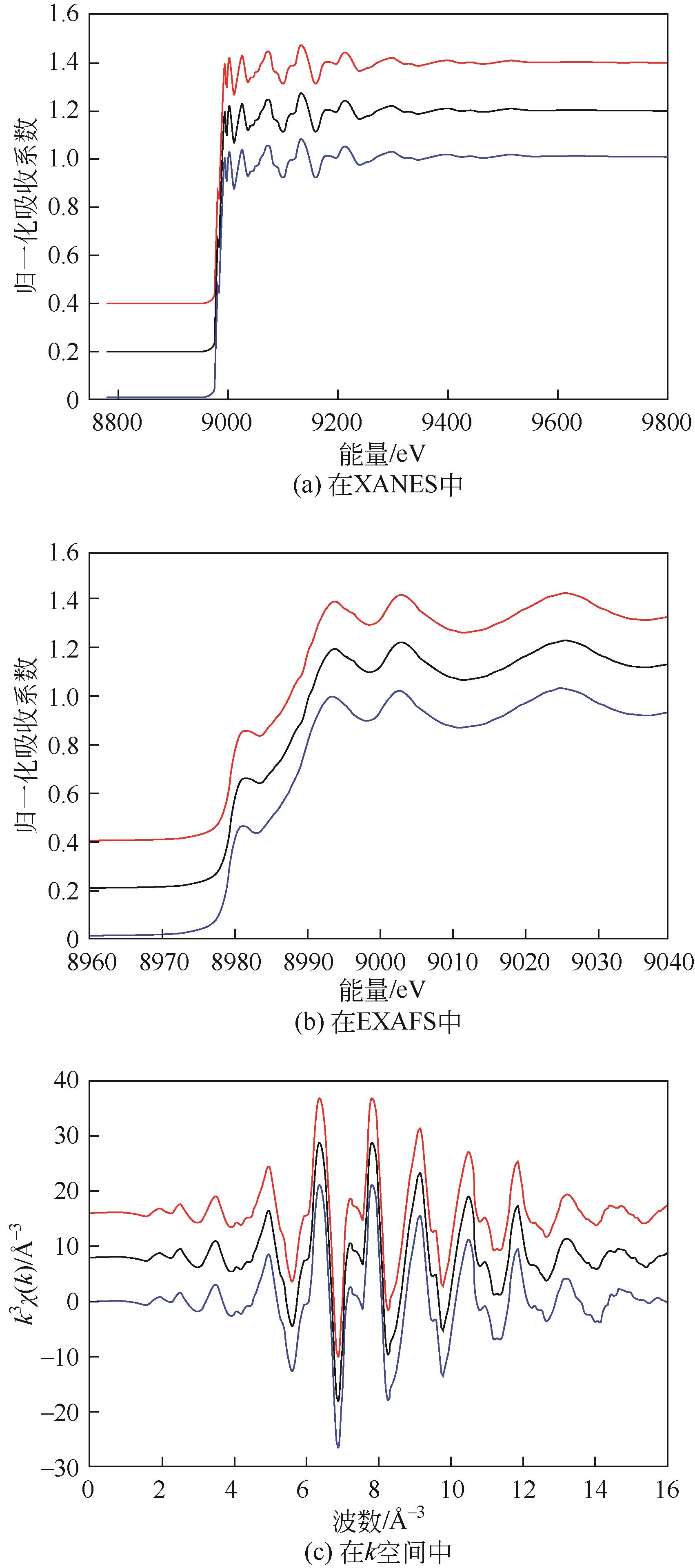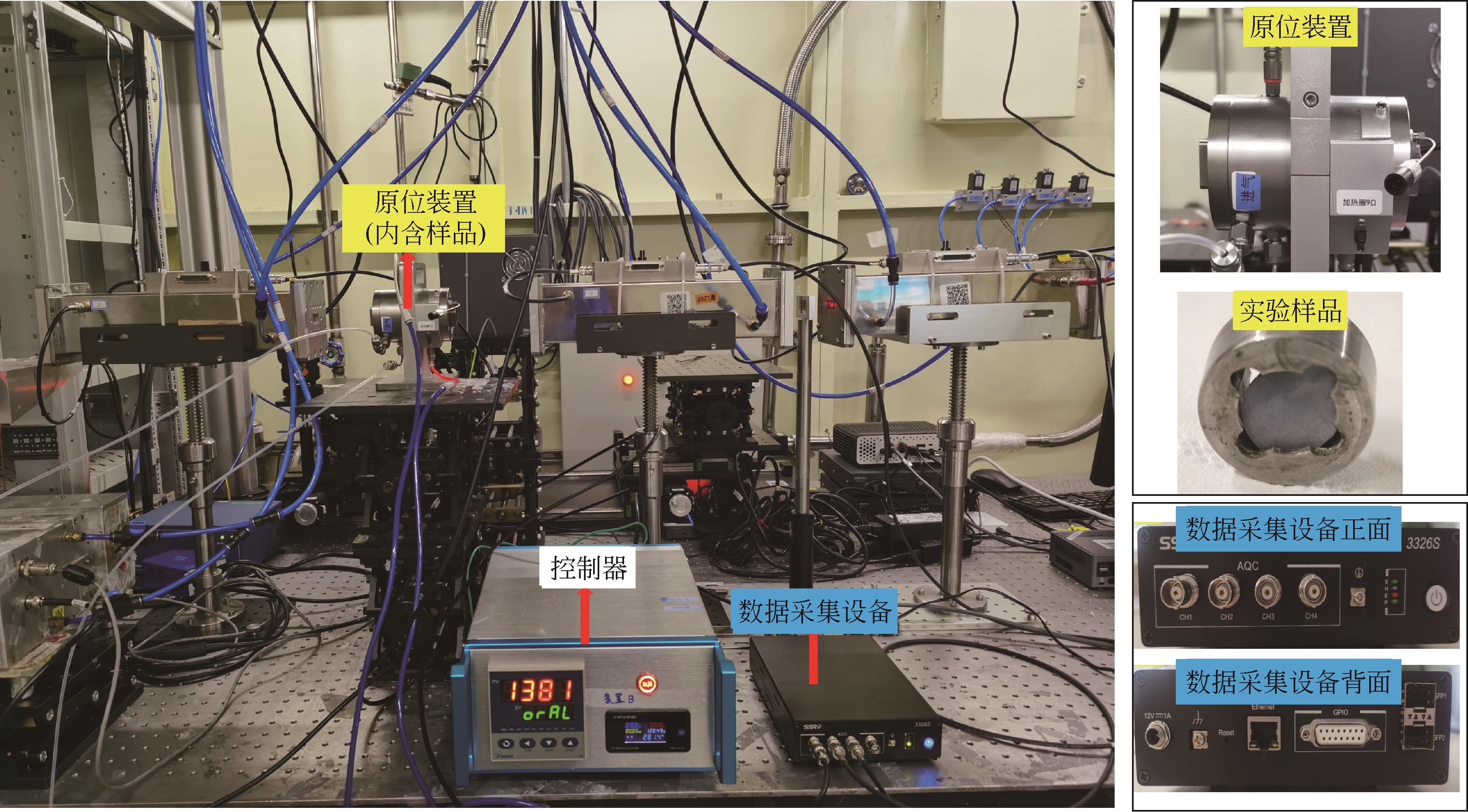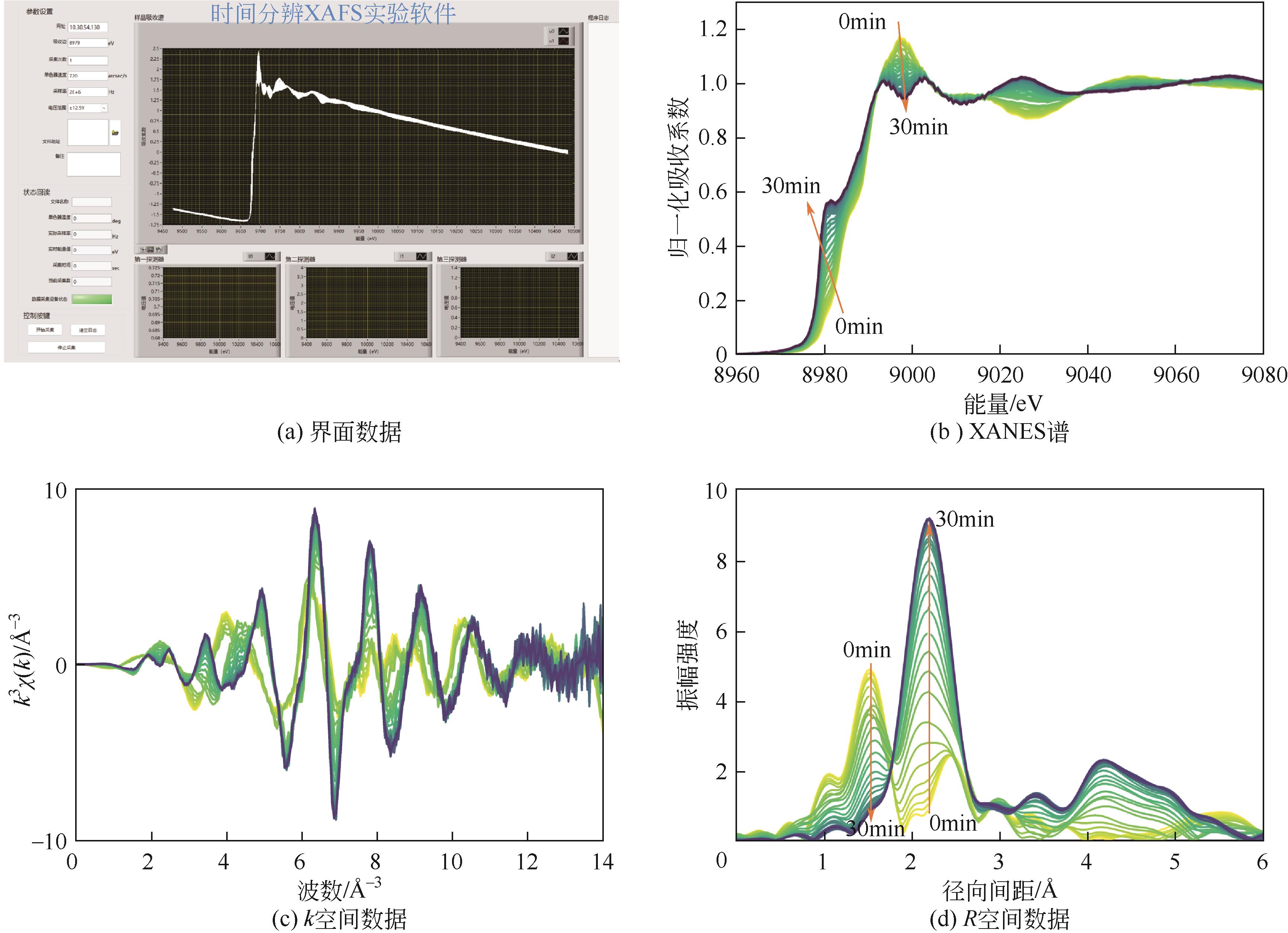| 1 |
XU Guangwen, BAI Dingrong, XU Chunming, et al. Challenges and opportunities for engineering thermochemistry in carbon-neutralization technologies[J]. National Science Review, 2023, 10(9): 11-13.
|
| 2 |
HAN Zhennan, JIA Xin, SONG Xingfei, et al. Engineering thermochemistry to cope with challenges in carbon neutrality[J]. Journal of Cleaner Production, 2023, 416: 137943.
|
| 3 |
王其武, 刘文汉. X射线吸收精细结构及其应用[M]. 北京: 科学出版社, 1994.
|
|
WANG Qiwu, LIU Hanwen. X-ray absorption fine structure and its applications[M]. Beijing: Science Press, 1994.
|
| 4 |
SMITH Anna L, VERLEG Malte N, VLIELAND John, et al. In situ high-temperature EXAFS measurements on radioactive and air-sensitive molten salt materials[J]. Journal of Synchrotron Radiation, 2019, 26(1): 124-136.
|
| 5 |
KONG Qingyu, BAUDELET Francois, HAN Jun, et al. Microsecond time-resolved energy-dispersive EXAFS measurement and its application to film the thermolysis of (NH4)2[PtCl6][J]. Scientific Reports, 2012, 2: 1018.
|
| 6 |
FRAHM R. Quick scanning EXAFS: First experiments[J]. Nuclear Instruments and Methods in Physics Research Section A: Accelerators, Spectrometers, Detectors and Associated Equipment, 1988, 270(2/3): 578-581.
|
| 7 |
Jan STÖTZEL, Dirk LÜTZENKIRCHEN-HECHT, FRAHM Ronald. A new stand-alone QEXAFS data acquisition system for in situ studies[J]. Journal of Synchrotron Radiation, 2011, 18(2): 165-175.
|
| 8 |
FRAHM R. New method for time dependent X-ray absorption studies[J]. Review of Scientific Instruments, 1989, 60: 2515-2518.
|
| 9 |
DENT A J, CIBIN G, RAMOS S, et al. Performance of B18, the core EXAFS bending magnet beamline at diamond[J]. Journal of Physics: Conference Series, 2013, 430: 012023.
|
| 10 |
LIU Heng, ZHOU Yongnian, JIANG Zheng, et al. QXAFS system of the BL14W1 XAFS beamline at the Shanghai Synchrotron Radiation Facility[J]. Journal of Synchrotron Radiation, 2012, 19(6): 969-975.
|
| 11 |
CHU Shengqi, ZHENG Lirong, AN Pengfei, et al. Time-resolved XAFS measurement using quick-scanning techniques at BSRF[J]. Journal of Synchrotron Radiation, 2017, 24(3): 674-678.
|
| 12 |
Oliver MÜLLER, NACHTEGAAL Maarten, JUST Justus, et al. Quick-EXAFS setup at the SuperXAS beamline for in situ X-ray absorption spectroscopy with 10ms time resolution[J]. Journal of Synchrotron Radiation, 2016, 23(1): 260-266.
|
| 13 |
YU Haisheng, WEI Xiangjun, LI Jiong, et al. The XAFS beamline of SSRF[J]. Nuclear Science and Techniques, 2015, 26(5): 6-12.
|
| 14 |
BUNKER Grant. Introduction to XAFS: A practical guide to X-ray absorption fine structure spectroscopy[M]. Cambridge: Cambridge University Press, 2010.
|
| 15 |
孙凡飞. 原位XAFS在不同催化体系中的发展与应用[D]. 上海: 中国科学院大学(中国科学院上海应用物理研究所), 2019.
|
|
SUN Fanfei. Development and application of in-situ XAFS in different catalytic systems[D]. Shanghai: Shanghai Institute of Applied Physics, Chinese Academy of Sciences, 2019.
|
| 16 |
于海生, 魏向军, 姜政, 等. 一种掠入射XAFS高温原位炉: CN106288796A[P]. 2017-01-04.
|
|
YU Haisheng, WEI Xiangjun, JIANG Zheng, et al. Grazing incidence XAFS (X-ray absorption fine structure) high-temperature in-situ furnace: CN106288796A[P]. 2017-01-04.
|
| 17 |
张晓哲, 孙凡飞, 姜政. 一种X光高温高压催化反应炉: CN103599732A[P]. 2014-02-26.
|
|
ZHANG Xiaozhe, SUN Fanfei, JIANG Zheng. X-ray high-temperature high-pressure catalytic reaction furnace: CN103599732A[P]. 2014-02-26.
|
| 18 |
LIU Yang, WU Dongshuang, YU Fei, et al. In situ XAFS study on the formation process of cobalt carbide by Fischer-Tropsch reaction[J]. Physical Chemistry Chemical Physics, 2019, 21(20): 10791-10797.
|
| 19 |
LIN Sheng-Chih, CHANG Chun-Chih, CHIU Shih-Yun, et al. Operando time-resolved X-ray absorption spectroscopy reveals the chemical nature enabling highly selective CO2 reduction[J]. Nature Communications, 2020, 11: 3525.
|
| 20 |
WANG Xingli, KLINGAN Katharina, KLINGENHOF Malte, et al. Morphology and mechanism of highly selective Cu(Ⅱ) oxide nanosheet catalysts for carbon dioxide electroreduction[J]. Nature Communications, 2021, 12: 794.
|
| 21 |
SUN Yifan, Felipe POLO-GARZON, BAO Zhenghong, et al. Manipulating copper dispersion on ceria for enhanced catalysis: A nanocrystal-based atom-trapping strategy[J]. Advanced Science, 2022, 9: 2104749.
|
| 22 |
ZHAO Xin, WANG Fengliang, KONG Xiangpeng, et al. Subnanometric Cu clusters on atomically Fe-doped MoO2 for furfural upgrading to aviation biofuels[J]. Nature Communications, 2022, 13: 2591.
|
 ), 孙凡飞2, 韦尧1, 宋兴飞4(
), 孙凡飞2, 韦尧1, 宋兴飞4( ), 南兵2, 李丽娜1,2, 黄宇营1,2
), 南兵2, 李丽娜1,2, 黄宇营1,2
 ), SUN Fanfei2, WEI Yao1, SONG Xingfei4(
), SUN Fanfei2, WEI Yao1, SONG Xingfei4( ), NAN Bing2, LI Lina1,2, HUANG Yuying1,2
), NAN Bing2, LI Lina1,2, HUANG Yuying1,2
